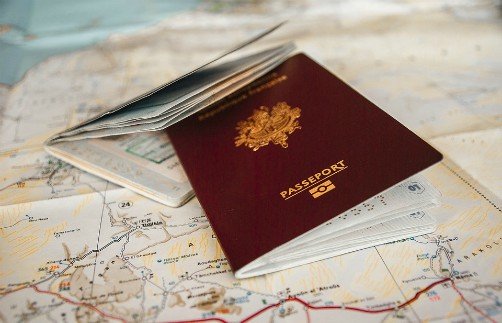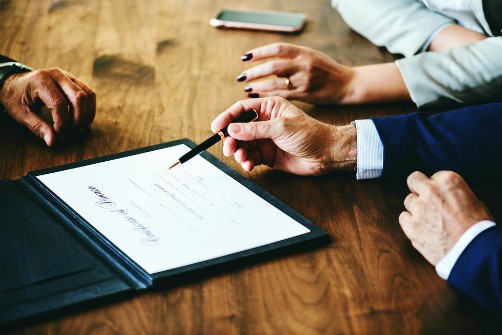|
Immigration to Bolivia: Residency Immigration requirements in Bolivia are different for each person or family depending on your country of origin. Bolivia travel visa requirements and costs depend on the bilateral agreements that Bolivia has with each country. Bolivia's immigration law is now based on the theory of "reciprocity" meaning that what your country's immigration officials require of Bolivians who emigrate, Bolivia will require of you. Below you'll find a description of the process you'll likely follow if you are planning to apply for residency in Bolivia.
The Bolivian residency application process:The following information should be viewed by you as a basic reference. It should not be understood as legal advice, as each individual or family's experience will vary. 1. Your first step will be to obtain a Specific Purpose Visa (visa de objeto determinado) from a Bolivian consulate in your country of origin, prior to arriving in Bolivia. You cannot apply for residency if you arrive on a tourist visa. The specific purpose visa is required for the specific purpose of applying for residency. It is valid for 30 days. You must complete all residency requirements and turn in your completed residency application to Immigration officials, within 30 days of entering Bolivian territory. There are several types of Specific Purpose Visas. Consult your local Bolivian consulate to see which is the most appropriate for you.
2. Your next step, once you arrive in Bolivia, should be to approach the Bolivian Immigration office in the Bolivian city in which you plan to live. Foreigners must approach the "Extranjeria" window. Other windows are for Bolivians who need services. Officials will provide you a list of requirements ("lista de requisitos") you must fulfill (documents you must obtain from other institutions) prior to filling out the residency application. You may request a one-year or two-year residency visa the first time you apply. Thereafter, you may renew for a two-year, five-year or permanent residency visa. Each residency term has a list of requirements, and each has a different cost. These requirements or prerequisites, which you must fulfill PRIOR to filling in your actual residency application form at the Immigration office, require you to visit various other Bolivian institutions. 3. Interpol International Criminal Background Check The Interpol office in the Bolivian city in which you plan to live will do an international criminal background check to be sure you have not committed any crimes in your country or others. This is called a "certificado de antecedentes penales". Note: This procedure takes longer than others. Begin at Interpol and then continue with the rest. Check in with Interpol every few days to see if your form is ready to be picked up. Be very insistent. 4. Bolivian National Criminal Background Check Bolivian officials will do a national criminal background check to be sure you have not previously committed any crimes in Bolivia during prior visits. This is called the "certificado de antecedentes penales" as well, but on a national level. 5. Registration of Your Address in Bolivia Be prepared to show proof of your new address in Bolivia (by presenting a water or electricity bill). Officials may visit your new home or apartment in Bolivia to verify your address. This form is called the "registro domiciliario". 6. General Medical Certificate A doctor must fill out a standardized form indicating what your current medical condition is. A general medical check-up will be performed which may include blood tests and x-rays, and/or other tests to verify that you do not port any contagious diseases or HIV/AIDS. 7. Marriage / Divorce / Birth certificates If you are applying for residency as a family, or a single parent with child(ren) you must provide proof that the children are yours, or that you have proper custody of them (in the case of a divorced or single parent). All marriage, divorce, and birth certificates must be translated to Spanish and notarized at a Bolivian consulate in your country prior to arriving in Bolivia. 8. Work Contract / Incorporation Papers If you have moved to Bolivia to work and you have a contract with a local or international company in Bolivia, you will attach a copy. If you plan to open your own business, you will be required to present the documents showing you've initiated the process to open your own company, such as incorporation papers and/or an opening balance sheet, or the registration of your company at the tax office. 9. Proof of Financial Stability/Solvency You will be asked to provide proof that you are financially stable. If you are retiring in Bolivia, and do not plan to work, you must prove the sources of income from which you will sustain yourself. If you will be starting your own business, you may be asked to open a bank account, deposit a certain amount of money, and turn in a copy of your newly formed company's opening balance statement. 10. Notarized Letter Requesting Residency Once you have gathered all of the documents you must present to Immigration, a notary and/or an attorney must write on your behalf a letter stating your intent to request residency. This letter is called a "memorial". 11. Official Immigration Residency Request Folder Once you have gathered all of the documents required, and have your "memorial" in hand, you must once again approach Extranjeria at the Immigration office. This time you will request the actual residency application form, which will be given to you in a folder. You must add to that folder all of the other documents, pay the amount corresponding to the time of residency you wish, and leave it all, including your passport, with immigration officials at this time. You must pay in cash, in bolivianos. No foreign currency or credit cards are accepted. This information is provided for general and informative purposes only. Laws change frequently, and although we do our best to update our website pages continually, we recommend approaching a Bolivian consulate or the Bolivian Immigration Services to inform yourself just prior to initiating an application for residency. This is the general procedure to apply for residency; however, each case is handled individually by the Bolivian Immigration authorities, who may or may not require you present additional documents. In addition, your immigration application process may differ slightly, depending on the specific purpose of your immigration. Be sure to research the requirements for the various different types of specific purpose visas you may choose when you decide to immigrate to Bolivia.
Tips for applying for residency on your own:
a) Throughout this time you may be approached by “tramitadores”: men and women who stand near the doorway of the Immigration office offering their services to foreigners. They will offer to help you fill out your paperwork, accompany you to all the correct places, and be your guide. They may also offer to take your documents and do all the footwork for you while you take the day off and de-stress. A word of warning: If you use a randomly chosen tramitador (as opposed to one who has been personally recommended to you), always accompany them everywhere. Bolivia has a very serious problem with the productions of falsified documents and identities. Document falsifiers produce fake documents based on copies of originals they "find" (which usually means they have someone who provides them). Stolen documents are also often doctored. So if you lose your passport, for example, it could be turned over to a falsifier who may transform your passport into a passport for someone else. It is advisable you use a lawyer or tramitador that has been personally recommended to you by someone you know and never an unknown tramitador. b) Make photocopies of everything, even if it seems unimportant at the time. Depending on what you are processing, your documents, including your passport or other forms of I.D., could be tied up in Immigration for days or weeks during which time you won’t be able to travel outside of Bolivia because Immigration will take possession of your passport until your residency has been approved. They do this because the residency approval stamp must be pasted into your passport. c) Be aware of local or national events or holidays that could hamper your attempt to speed your process. Many public and private offices close down not only for holidays, but for events they might consider important – even if you do not, for example, a major soccer game (the entire city could close offices early if the game is considered important enough). d) For information on in-country visa procedures and requirements, please consult the Bolivian Immigration Service at www.migracion.gob.bo (please note that the website is in Spanish), fax/telephone (+591-2) 211-0960, street address Avenida Camacho entre Loayza y Bueno, La Paz, Bolivia. e) Should you need to travel during the time your passport is being held with your residency application, in emergency cases, the Immigration Service may permit residency applicants to retrieve their passports. However, under current regulations in such cases, this does not put your residency application "on hold" to be continued when you return. It annuls your application completely. Upon returning to Bolivia, you would have to commence the residency application process all over again, including re-visiting all pre-requisite institutions to obtain all corresponding paperwork. If you choose to do this, once you re-apply for residency you must also pay all of the corresponding fees again. In addition, withdrawing your passport does not entitle you to a refund of your initial payment. Bolivia Expat Services can assist with the immigration process.
    |

